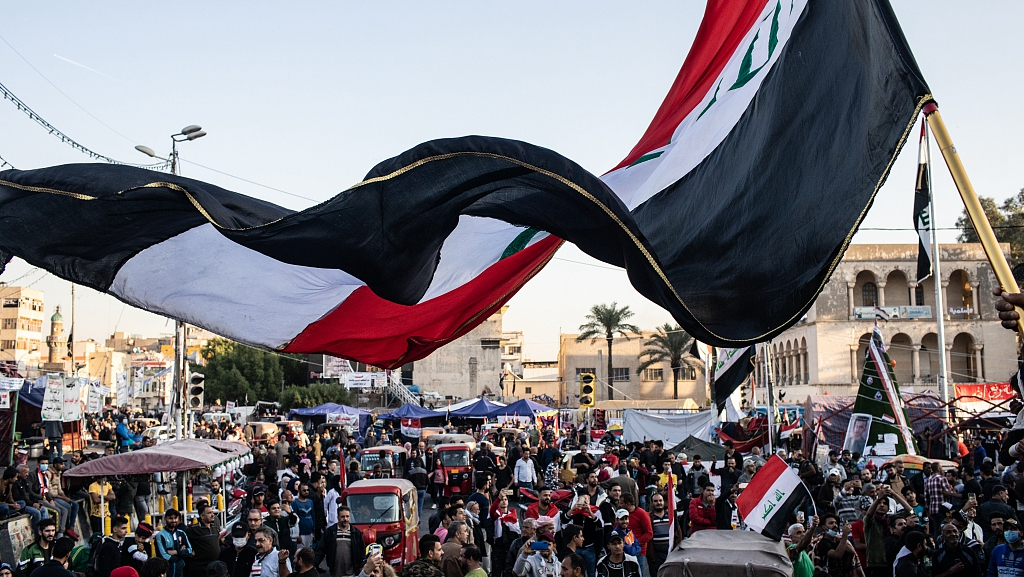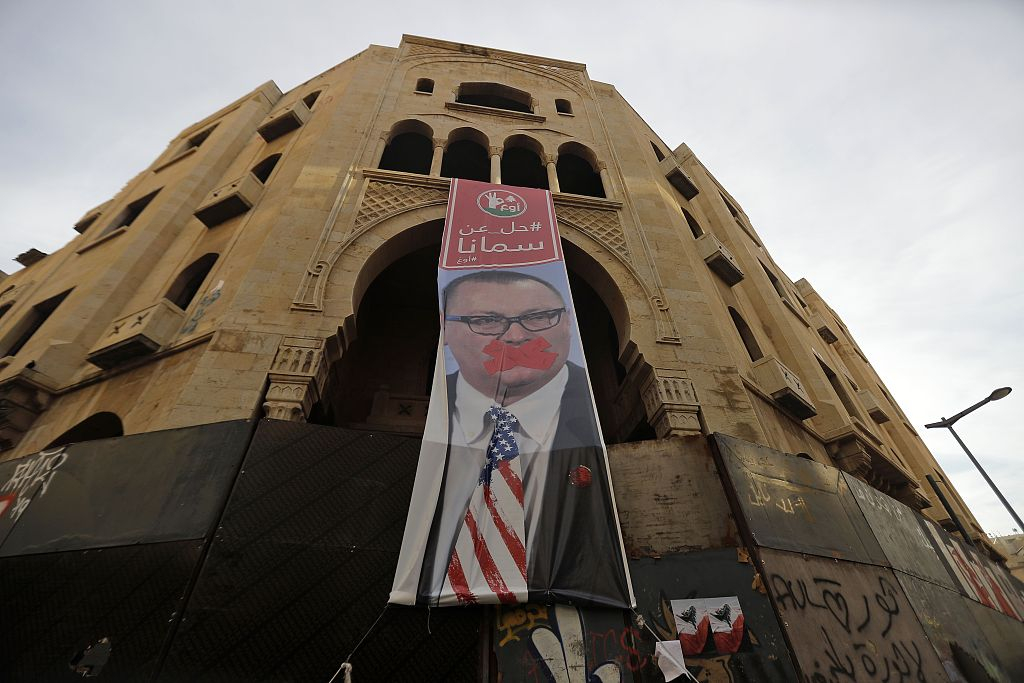
A flag waves over Tahrir Square in Baghdad, Iraq, November 21, 2019. /VCG Photo
A flag waves over Tahrir Square in Baghdad, Iraq, November 21, 2019. /VCG Photo
Editor's note: Dr. Wang Jin is a research fellow of Charhar Institute in China and an associate professor from Northwest University in China. The article reflects the author's opinions, and not necessarily the views of CGTN.
The protests in Lebanon and Iraq have been ongoing for months. Although many reasons have pushed people to spill onto the streets, including lack of water, electricity and job opportunities, the most fundamental one is opposition to sectarian politics.
Both Iraq and Lebanon base their politics on sectarian power-sharing structures with seats in the parliament and government distributed according to sectarian quotas. Modern Lebanon was born with different sectarian groups, including Christians, Sunni Muslims, Shi'a Muslims and Druze, at its core. This sectarian political principle could be traced back to the Ottoman era, while the French mandate from the 1920s to 1940s consolidated such a structure.
Divisions and frictions between different sectarian groups have led to challenges and risks. A 15-year civil war erupted in 1975 and several agreements, including the Taif Agreement (1989) and the Doha Agreement (2008), mediated and facilitated by the international society failed to help different parties narrow their differences.
Similar scenes could also be observed in Iraq after 2003. Before that year, the country under the leadership of Saddam Hussein's Baathist rule maintained domestic stability for decades. But the U.S.-led invasion ousted Hussein and worsened sectarian and ethnic divides between the Sunnis, Shias and Kurds, the rivalries among which became increasingly prominent. The government formation process last year witnessed challenges caused by sectarian divisions, while the central government has failed to manage and control local groups such as the Shia People Mobilization Units (al-Hashd al-Shaabi).

A giant poster of former U.S. ambassador to Lebanon Jeffrey Feltman, hung on the front of a building, Beirut, Lebanon, November 25, 2019. /VCG Photo
A giant poster of former U.S. ambassador to Lebanon Jeffrey Feltman, hung on the front of a building, Beirut, Lebanon, November 25, 2019. /VCG Photo
Sectarianism has led to instability, weakness and paralysis of government. It affected public services, including social welfare, and prevented governments from meeting the basic demands of their people, especially the youth.
Such political systems are also plagued by frequent political vacuums that have proven to be opportunities for interference from foreign powers. Iraq has been described as the wrestling ring between the U.S. and Iran after 2003, while Lebanon has been the playground of several powers including the U.S., Syria, Israel, Iran and Saudi Arabia for decades. The rivalry between regional and international powers could easily translate into internal divisions between different sectarian groups, further intensifying political and social unrest.
The recent protests in both Iraq and Lebanon have united people around their common identity instead of different sectarian labels, bringing them together to demand better lives and governance.
It's not possible for protests to fundamentally change the political systems but they might be a wake-up call for people in the Middle East to reconsider such systems and contribute to building a fairer government and political systems that could finally transcend sectarian differences.
(If you want to contribute and have specific expertise, please contact us at opinions@cgtn.com.)